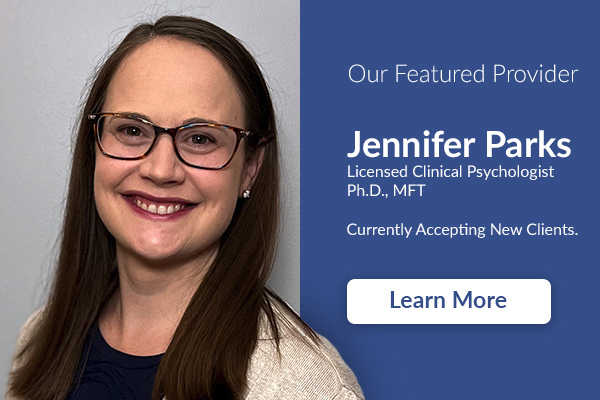I am a spiritual director. I am a clinical psychologist. I am both. I am present to both of these parts of myself whether I am doing spiritual direction or psychotherapy, but I first had to learn the distinctness of both and honor their place and timing in people’s lives. Let me further explain what I mean.
I am present to both of these roles whether I am doing spiritual direction or psychotherapy because I cannot stop being who I am or knowing what I know. My constant hope is that I am fully me – genuinely and authentically living out who He has created and equipped me to be – so that I may be fully present with another. For the focus of this article, that would include all the learning and experience of being both a spiritual director and clinical psychologist.
With that being said, I fully recognize the distinct purposes of each and honor the role the person sought me out for. Yes, there are some similarities and overlap with spiritual direction and therapy. Spiritual direction can feel therapeutic at times, but that does not mean it is therapy. On that same note, therapy sometimes can feel deeply spiritual, but it is not spiritual direction. One can even enhance the other. For example, your work in therapy to improve your psychological health can help clear the way and increase your ability to connect to God, hear His voice and serve in ministry from a place of freedom. Likewise, your growth in spiritual direction can improve your capacity to work on psychological issues.
There is something deeply transforming when a person encounters God and experiences His unconditional love. It emboldens their soul to face their hidden shame and look into the painful places of their hearts. Many come to realize that God has been patiently waiting for them in those painful places, ready to do His healing work in them. I have watched directees enter into their grief and loss more deeply, rather than avoiding their pain, as they have grown in their experience of God’s love and care for them. I have watched those struggling with depression or anxiety begin to better understand how shame has played a part in their psychological struggle as they experience God’s love remove their shame and set them free. Whatever role you are in, it is important that you are clear on the differences of each so that you honor their distinctiveness, have clarity of your role, and respect the purpose for which the person has sought you out.
So, let us clarify spiritual direction and psychotherapy. Spiritual direction is about listening to God’s voice and being attentive to the Holy Spirit’s movement in your directee’s life. Unlike psychotherapy that may use evidence-based treatment to help a client, spiritual directors do not have standard guidelines for treatment or promise to have the answers. Spiritual directors and their directees lean on and trust the Holy Spirit to “show up” and provide guidance needed for discerning truths about our relationship with God, true self, purpose, spiritual longings, deeper wisdom, meaning, sacred experiences and our responses to the Holy and holy. Spiritual direction does not offer certainty, rather it offers presence. In fact, embracing the Mystery (of God) and mystery (of life) may be an area of exploration in spiritual direction.
There have been many times in spiritual direction when my spiritual directee and I have discussed the psychological pain and spiritual desolation that comes with experiencing unfortunate tragedies in our lives, such as death, divorce, consequences of sin, struggle with medical or psychological issues. Despite these obvious dual experiences of psychological pain and spiritual desolation and the need for both spiritual and psychological support, when I am in the role of spiritual director, the focus is on my directee’s experience of God in the midst of the tragedy, noticing the sacred and their response of their encounter with God.
Although the terms counseling and psychotherapy are often used interchangeably, there is a difference worth noting. Counseling is often short-term and helps a person work through specific problems, such as a relationship challenge, stress, and addiction. Psychotherapy is often long-term and goes deeper into exploring and managing unhealthy patterns of behavior, thinking and emotional responses that negatively impact how a person perceives and interacts with the world. I have found in my work as a clinical psychologist that when a person is struggling with trauma, depression, anxiety or other mental health challenges, they sometimes struggle in their relationship with God. This often manifests with questions of God’s purpose in their suffering, wondering if God is punishing them and withdrawing from their relationship with God and faith communities. My therapy clients sometimes bring up spiritual matters, which I welcome, but when spiritual matters become the focus of the session, it may be necessary to refer them to a spiritual director who can better engage and focus on this part of the work.
Although I have been educated and trained in both psychotherapy and spiritual direction, I do not practice both disciplines with one person. The purpose and focus of psychotherapy and spiritual direction are so distinct that each discipline requires the time, space and attention for the most optimal results. The ideal situation would be for a psychotherapist and spiritual director to collaborate together as they work with the person to move them towards wellness and wholeness. If a conversation is needed between the psychotherapist and spiritual director, it will be necessary to get the client’s/directee’s permission to do so.
When we are clear about what spiritual direction and psychotherapy is, we are better able to be fully who we are and use all the gifts and knowledge we have been entrusted without confusion and blurring of roles. As a Christian psychologist, I listen for and seek God’s guidance not only in spiritual direction but equally in psychotherapy. In spiritual direction, I invite the directee to notice their thoughts, emotions and behaviors that either draw them closer or away from God, a practice often found in psychotherapy (but on a broader relational scale). Having clarity of each discipline enables us to use the richness in each discipline, while staying true to the role and purpose of the session. Barbara Brown Taylor, in her book Learning to Walk in the Dark, sums it up well, “We go to counselors when we want help getting out of caves. We go to directors when we are ready to be led further in.”
Originally appeared on Grafted Life Ministries
SamaraCare helps people achieve their greatest potential by being compassionate and spirit-led counselors, consultants and advocates. We want the importance of mental health, access to mental health and the pursuit of mental health to be pervasive and invite you to talk about mental health openly and honestly, and help put the stigma of mental health far behind us.




Comments are closed.